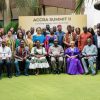For Carib News 3/30/16
Thursday, February 25, 2016 was the fifth time in Jamaica’s relative young democracy that power was transferred peacefully. There is no question regarding the integrity of the ballots counted. There were a few tight races which necessitated a recount but essentially the original votes cast were upheld. The election could not have been closer and the one seat margin of the JLP will mean a new election will have to be held within one to two years.
The violence that was typical of tribal politics in the 1970s and early 1980s is now extinct. The guns vis-à-vis tribal politics have been silenced. The electorate has rejected the idiocy of intra-class violence. But that does not mean all is well with Jamaican democracy.
The political parties have made significant progress. Enumeration and the administering of elections now transcend party politics and has become the responsibility of the non-partisan Electoral Commission. What the nation now has to tackle in the forthcoming elections is the corrupting influence of money. The gold rush now tarnishes the integrity of the democratic process. It appears paradoxically as the violence has waned, more and more votes are for sale. Both parties and most candidates participate in this undemocratic process. Quite a few candidates who took a principled position and refused to “let off something” did not fare well in the political sweepstakes.
There have been two Commissions of Enquiry appointed in recent years – the Coke extradition debacle and the extra-judicial killings in Tivoli Gardens in May, 2010. The latter Commission has dragged on for too long and a disinterest regarding the findings has set in. Nonetheless, commissions have their place and there needs to be a commission established to examine the widespread nature of vote buying and the corrupting influence of money in Jamaican politics. The commission would make recommendations as to how this practice can be expunged from the democratic process.
When Andrew Holness succeeded Bruce Golding as the leader of the JLP, he began somewhat shakily and was subsequently challenged by Audley Shaw. Holness prevailed and the campaign conducted by the JLP in 2016 and the victory of 32 seats has given him a firm footing as leader of the Party. But the challenge of planning a successful campaign is not as gargantuan as governing. The promise of eliminating taxes for those making $1.5 million or less was a key factor in the electorate swinging to the JLP. The task for Prime Minister Holness and Finance Minister Audley Shaw is how do you deliver this campaign promise, balance the 2016-2017 Budget and pass the forthcoming IMF test. The credibility of the new government is readily on the line.
Whereas Holness was triumphant and the 2016 election represented redemption of his leadership capabilities, the PNP defeat has unquestionably forced the Party faithful to ponder the fate of Portia Simpson Miller. She has led the Party in three elections, 2007, 2011 and 2016. She failed to be victorious in 2007 and 2016 and was gifted a victory in 2011. That grassroots support that was the hallmark of her persona has simply eroded. It is clear that the electoral and governance process has entered a new era and the skill-set that is required to lead a political party in the twenty-first century is not possessed by the extant veteran leader who began her career in the 1970s.
Leadership succession in Party politics in Jamaica remains an underdeveloped science. For the JLP, Sir Alexander Bustamante stayed in office for too long and his hand-picked successor, Hugh Shearer, was an effective trade union organizer but an ineffective Prime Minister.
Edward Seaga succeeded Shearer and won his first election as Party Leader in 1980. Seaga’s leadership style and his reputation as a guerilla street fighter invariably meant that after the Nicodemas election of 1983, he lost general elections in 1989, 1993, 1997 and 2002.
Much maneuvering was required to remove “Mass Eddie” from the helm of the JLP. The Party’s first taste of state power since 1980 occurred in 2007 under Bruce Golding’s leadership.
The PNP should not make the same mistake. It enhances a leader’s legacy when they are magnanimous, sees the writing on the wall and step down graciously. The United States constitution specifies that a President is restricted to two terms.
The tradition in British politics is that when the leader of a major Party loses in a general election, that Party Leader steps down and makes it possible for a new leader to emerge.
In Jamaican politics, there is a generational shift in the making. Even in the JLP, it is time for Pearnel Charles, Mike Henry, Karl Samuda, Derrick Smith and others of that generation to create the space for “young Turks” to rise to the fore. In many respects, Andrew Holness represents a new generation of leaders and some of the key appointments in the new Cabinet reflect this generational shift.
Some of that is taking place in the hierarchy of the PNP. Neither Robert Pickersgill nor Omar Davies has taken up old or new portfolios in the Shadow Cabinet. They have signaled that it is time for them to ride into the sunset. The PNP is in need of a generational makeover. That must be accompanied by attracting highly educated cadres into the Party who can contest the next general election.
The founder of the PNP, Norman Manley, knew after losing the 1967 election that it was time for him to retire from electoral politics. Michael Manley, his successor, knew when his health began to fade after the victory of 1989 that he had to make way for a new vigorous leader. P.J. Patterson who led the PNP to electoral victories in 1993, 1997 and 2002, knew when it was time to pass the baton. It is now Portia’s time to pass the baton and for the PNP to revitalize and re-intellectualize Party life. The Party of Norman Manley is no longer on the cutting edge of new ideas.















